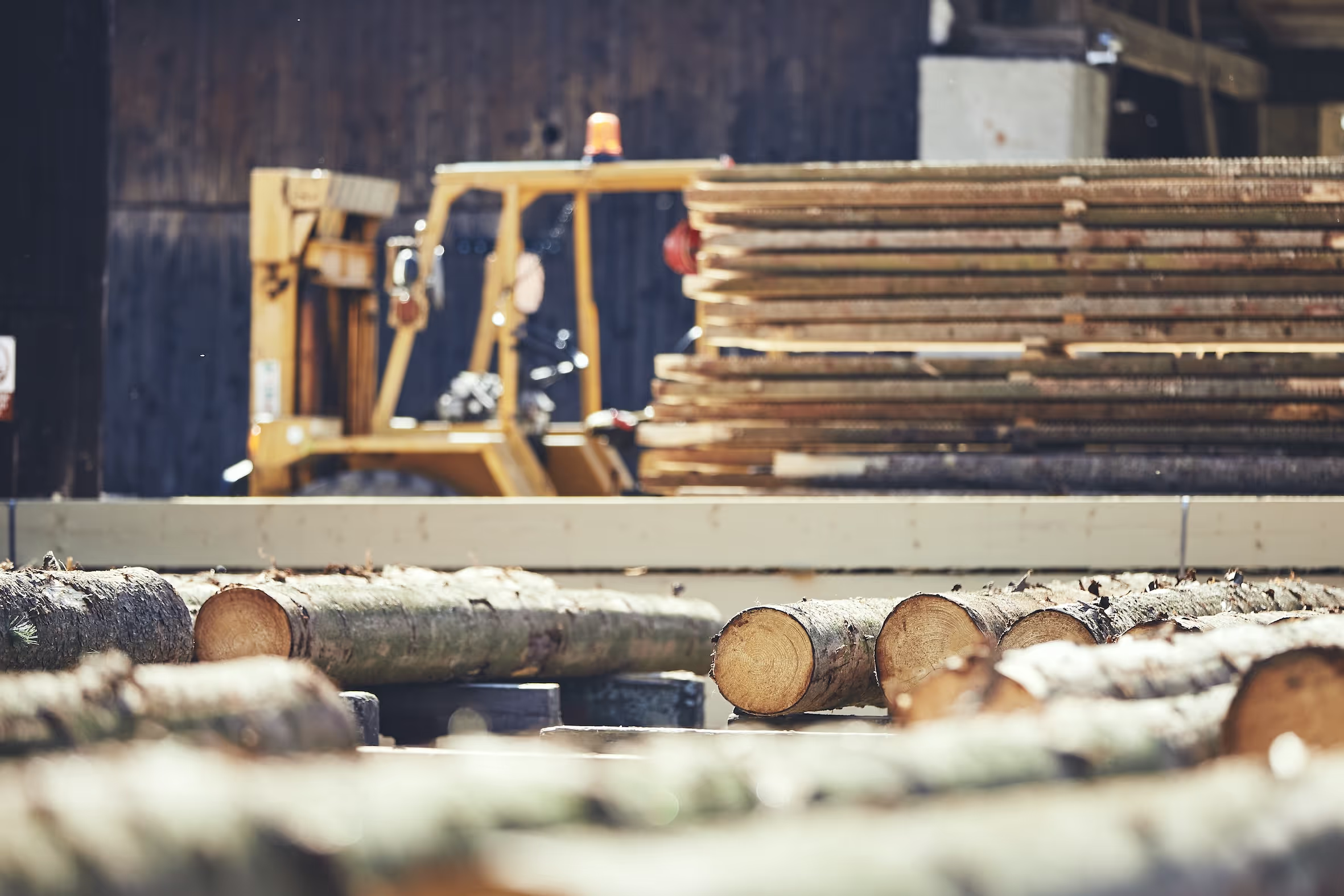Editor’s note: This article was written prior to the European Parliament vote on 17 December 2025, which approved a 12-month delay to the implementation of the EU Deforestation Regulation (EUDR). The content is currently under review to reflect this change.
As part of our ongoing EUDR Lunchtime Webinar Series, we recently hosted a session with Interu’s Chief Product Officer, David Coleman, to dive into some of the most common questions businesses have about TRACES NT and how it connects to compliance with the EU Deforestation Regulation (EUDR).
In this Q&A recap, David shares practical insights on TRACES NT functionality, the role of EORI numbers, pre-compliance preparation, and how Interu works alongside TRACES NT to support due diligence workflows.
- How are goods distinguished as being from an SME?
Customs declarations for in-scope products imported or exported from the EU detail the importer of record’s EORI number. The competent authorities enforcing EUDR will know from the EORI number whether the operator / trader is an SME or not and assess compliance based on that.
- If I am based outside of the EU, can I use the EORI number of another company in our group which is based in the EU?
It depends what you are using the EORI number to do and why you would opt to do this as a non-EU company.
Submitting DDS to TRACES is on the understanding that the organisation doing so has conducted due diligence on the supply chain. Specifically, FAQ 3.7 from the European Commission about this topic explains that:
"Non-EU based operators will only have access to the Information System if they have a valid EORI number issued by an EU Member State or by the United Kingdom in respect of Northern Ireland (XI). They will have access to the system in the role of an operator."
There is clarification needed from the EU around the EORI numbers and Traces NT. On the face of it the DDS submitted via an EU (or Northern Irish EORI number) is intended to be used for goods that are being placed on the EU market. So you should be able to use the EORI number of the company doing that for the shipment in question. It comes down to who has the legal responsibility for those goods placed on the market. So as long as the EORI represents the responsible party, then you can use that EORI number.
- We understood a TRACES account can be opened with a UK EORI, is this not correct?
A TRACES account can be opened with a UK EORI number and used to check DDS reference numbers. However, as we understand it (and from live tests within TRACES), a GB EORI number cannot submit DDS to TRACES. As above, FAQ 3.7 describes that in the respect of the UK, a Northern Irish EORI number can be used to submit DDS to TRACES.
- Can TRACES NT help in Palm Oil supply chain compliance? Especially in South East Asian plantations?
Importantly, TRACES NT is not a compliance tool - it is not going to check plantations for the operator, it is not going to assess risk. TRACES NT is a tool built to collect and store declarations of no risk of deforestation and submit (minimal) critical information relating to transactions. Evidencing compliance requires much more than just the information submitted to TRACES NT. It requires proper due diligence and risk assessment.
- Could you please let us know the pre preparation steps to proceed with compliance?
The EUDR regulatory text outlines key requirements.
Article 8 describes that prior to placing products on the EU market (or exporting), operators need to conduct due diligence on the supply chain which needs to include:
i) Collection of information to satisfy Article 9 (key information requirements)
ii) Risk assessment (Article 10) of the supply chains (using the information collected in step i)
iii) Mitigation (Article 11) of any risks identified in step ii
Article 12 describes the obligation for companies to have a due diligence system to record and store all information.
To achieve this we advise our customers to firstly get clear on the extent they are in scope and what their obligations are. This differs depending on the products they handle, the size of the company, their role in the supply chain (operator or trader), their place in the supply chain (upstream / downstream, first operator in the EU or a supplier to an EU company).
Therefore as ‘pre-preparation’ everyone must start by understanding their supply chains - what products are there, who sells them to you, where are they sourced from, where are they produced, what are the requirements of the country of production, etc. Everything comes back to understanding your supply chain.
- Are you able to provide any useful resources, other than the official sources helping with the API development?
As a community of providers like us it is in everyone’s interest to help each other on this topic. We used the European Commission’s public information about TRACES when integrating with the TRACES API. If you have any questions feel free to reach out to us and we can give you some technical advice and more detail.
- How would a workflow of Interu as a traceability tool work with TRACES in practice? Can you show a mini-demo?
Per FAQ 5.21 the earliest moment a company can submit a DDS is when they have completed (or ascertained) due diligence on a transaction, prior to placing the products on the EU market (or exporting).
Companies use Interu to collect and analyse information and evidence due diligence conclusions. Because that information lives in Interu, linked to specific purchase orders, batches or transactions, a user can access the purchase order or delivery record in question, and selected to ‘Generate DDS’.
This automatically creates a draft DDS, and alerts users to any incomplete information (for instance, missing HS codes, incorrect units of measurement, etc.). Once complete, the user can directly submit the DDS to TRACES.
Once submitted it is saved in Interu as well as being logged in TRACES. Once accepted by TRACES (which currently takes 1-2 minutes), Interu automatically retrieves the reference and verification numbers associated with the DDS from TRACES and links them to the products in question.
We would be very happy to hear more from you about your own workflows and show you a demo. Please feel free to reach out directly.

- I'm still struggling to understand exactly our obligations within the new regulation. We are a UK business - a wholly owned subsidiary of a larger EU organisation. We trade some self-adhesive material products to the other companies in our group in the EU. Outside of that our customers within the UK require us to comply with EUDR regs. How far do we need to go with our own Due Diligence?
The answer depends on what role the UK business plays when it comes to EUDR. If the UK business is expected to conduct EUDR-level due diligence on behalf of the group, then you would be expected to comply fully with all Article 9 information requirements and Articles 10/11 risk assessment procedures.
Otherwise, it is the responsibility of the EU sister companies to complete EUDR level due diligence and comply.
In terms of your UK customers, if you are supplying them directly within the UK, and they then ship to their own EU customers, they are legally responsible for compliance. Not the UK company or you. However if you ship directly to your UK customer’s own EU customers, then it is important to determine who the importer of record is as it is likely that they are the ones who are legally responsible for compliance.
It is not uncommon for EU companies to demand their non-EU suppliers to provide full supply chain information for them to be able to comply.
- How likely do you think the EU are going to consider a delay (again) considering that they've just rejected their own Risk Countries categories? We are having real problems with the raw materials and then secondary products needing to be compliant at the same time.
We all learned a lot about policy and the relationships between the European Commission, the European Parliament and the European Council last year when the agreement was reached across all three bodies to extend implementation by 12 months. We never knew it could be that dramatic or interesting to follow until then!
The rejection of risk benchmarking you describe relates to the European Parliament’s rejection of the methodology of the Commission’s proposed risk benchmarking. This definitely signals political pressure to consider a “no risk” category. The EUDR itself was legally enacted in 2023, and the law itself requires review of the benchmarking (expected to take place in 2026). However, the European Parliament’s rejection is not legally binding, the Commission does not have to do anything with it, so for now there are no changes.
In terms of what happens next we would love to know as much as anyone else. There is ongoing consultation about the EU’s Green Deal regulations, which EUDR is part of, and talk of a potential simplification in October. But to date, even with the additional 12 months of implementation, the scope and obligations have changed little and it would be prudent to plan on enforcement from 30 December 2025.
TRACES NT plays an important role in how companies declare compliance, but as David emphasised, it is not a substitute for full due diligence or supply chain risk assessment. Businesses must be proactive in mapping, assessing, and mitigating risks across their supply chains to meet the obligations of the EUDR.
At Interu, we help organisations of all sizes to streamline due diligence, manage risk, and connect compliance processes directly with TRACES NT. If you’d like to learn more about how Interu can support your EUDR journey - or if you’d like to see a demo of our workflows in practice - please get in touch with our team.


.avif)


